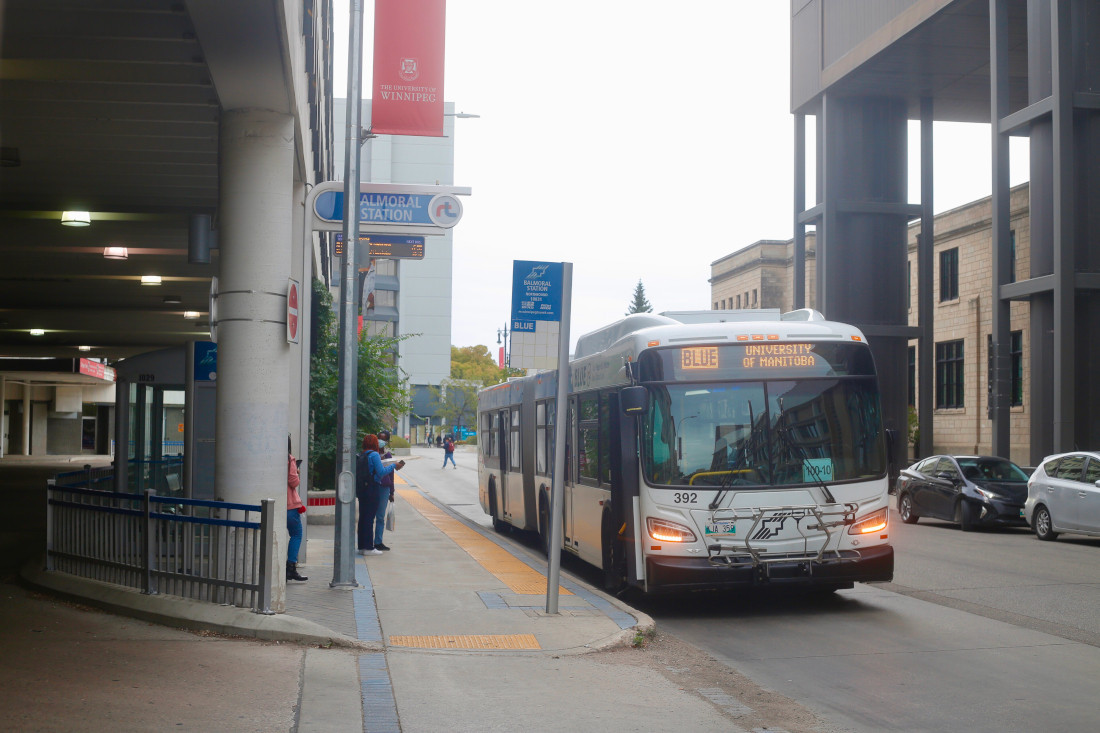Zero fares
Low-cost transit is safe transit
Security concerns are impacting Winnipeg Transit’s image and discouraging ridership.
The City recently approved a $5 million budget for a new transit security force. Instead of spending more on security, the City should consider other solutions to address the public-transportation crisis. This could include offering free or lowcost bus fare to every Winnipegger.
Support for free bus fare is gaining traction. According to a New York Times article published in 2020, about 100 cities around the world have some form of zero-fare policy. Kansas City completely eliminated fares in 2019. Other United States cities, including Denver, Salt Lake City, Los Angeles and Boston have contemplated similar initiatives.
In Canada, a section of Calgary’s C-Train is complimentary. Children under 12 in Victoria are allowed to ride free of charge. Here in Winnipeg, children 11 and under are allowed to ride the bus for free if accompanied by a fare-paying passenger.
Free fares can help increase the safety of drivers and passengers.
Earlier this month, Amalgamated Transit Union (ATU) Local 1505 president Chris Scott told CBC that discounted bus fares could help reduce passenger conflict.
Marginalized citizens rely on public transit more than others. Every time bus fares increase, they cut into people’s transportation budgets. Rising prices and general cost-of-living increases can lead some passengers to refuse to pay bus fares and escalate tensions between bus operators and riders.
Zero-cost transit has the potential to increase ridership, reduce car dependence, drastically reduce transportation poverty and help mitigate security problems for passengers and drivers.
Brian Pincott of Functional Transit Winnipeg, a group that advocates for transit improvement, said that reducing fares would advance ridership while cutting security concerns. He said increasing Winnipeg Transit fares limits access for those who need bus services the most.
Kansas City’s zero-cost transit system has demonstrated what advocates like Pincott have been saying for years: If you provide free transit, they will come. Kansas City Regional Transit Alliance chair David Johnson said that since removing fares from Kansas City buses, passenger confrontations have decreased. Kansas City's free-transit trial expires this year, but the policy is expected to be renewed.
Winnipeg still has a long way to go before reaching fare zero. A defeated 2021 motion by Coun. Vivian Santos proposed the implementation of a $1 fare. At a recent public-works committee meeting, Santos urged other committee members to acknowledge the success of discounted fares in other cities and consider employing something similar in Winnipeg.
However, critics say offering free or lowcost fares is not feasible due to a 2022 budget deficit of $54 million.
Kansas City offers a glimpse of what’s possible when a city invests in public transportation as a public good rather than a commodity, by providing a secure service that benefits everyone. Rather than adding more security personnel, Winnipeg Transit needs to consider more creative options, including increasing use by lowering fares and increasing frequency of services.
Winnipeggers must consider discounted bus fares as an equity, climate and security policy to ensure the city moves forward.
Adam Johnston is an active- and public-transportation advocate. Follow him at adammjohnston.wordpress.com or on Twitter at @adamjohnstonwpg.
Published in Volume 77, Number 22 of The Uniter (March 16, 2023)







